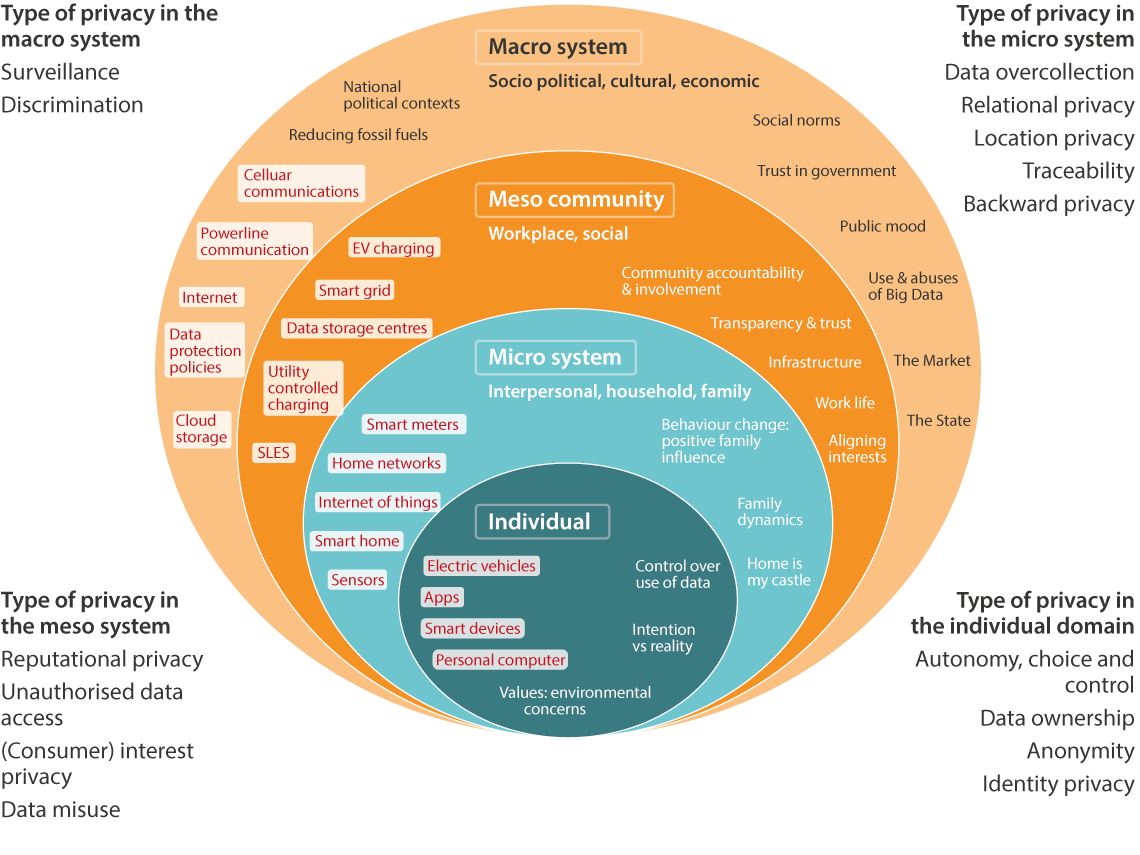By Chris Maidment, University College London
Following on from previous work assessing the evidence available on the broad aspects of Smart Local Energy Systems (SLES), we are have now just completed the first of our ‘deeper dives’ looking at privacy concerns and barriers to data sharing in the energy sector, particularly how they might be addressed or overcome. A full set of reports associated with this work can be found here. We have identified an array of privacy-related issues (see image above) and found certain recurring themes emerging such as trust, transparency, clarity and consent.
Using a rapid realist approach, drawing from literature on SLES and other fields where needed to identify not just what works but for whom and in what circumstances. This resulted in a wide-ranging list of recommendations aimed mainly at those planning and providing SLES, broadly summarised as:
- Build on existing trust to deliver mutually beneficial outcomes;
- Ensure people feel in control of their data and environment ;
- Help people to understand new products and services;
- Design SLES around user priorities and make these benefits clear;
- Monitor, and use a variety of approaches to, actively widen engagement;
- Consider everyone effected by data sharing when seeking consent to share data;
- Provide clarity on how data will be used (and how misuse will be prevented);
- Consider leveraging ‘horizontal sharing’ where appropriate.
Within each of these eight categories specific recommendations are provided to help SLES providers work with users to get the data they need to operate, while respecting and addressing privacy concerns.
Some of these specific recommendations support our thinking and work that is already taking place. For instance, the advice that “SLES schemes should involve trusted local actors” is already followed by Oxfordshire’s Project LEO, which includes local government among its partners.
Other recommendations suggest approaches and ideas that may not have been considered, such as neighbourhood schemes that offer participants greater vertical privacy such as sharing less data with energy providers in return for less horizontal privacy including sharing data with peers who are collectively accountable for reducing energy use.
The research also explores the balance between the needs of SLES providers and users, and how this is communicated. For example, explaining in detail how personal data is protected may, counter-intuitively, remind people of the dangers of data breaches more than it reassures. A more persuasive approach would include clarifying the benefits that sharing data will generate for both parties. Energy companies are expected and trusted to use data to provide relevant services and – as is clear from examples such as web cookies, tools and apps, social media, smart phones and smart home devices – people are willing to share data in return for many reasons including money, information and convenience.
The full list of recommendations and the evidence behind them are set out in our full report, appendices and briefing report along with a more detailed discussion of our review process and findings in the technical report and an academic paper that will be submitted shortly.
Future reviews EnergyREV will focus on issues that cut across our activity areas and will help to develop our understanding of how SLES are created and achieve their goals.
